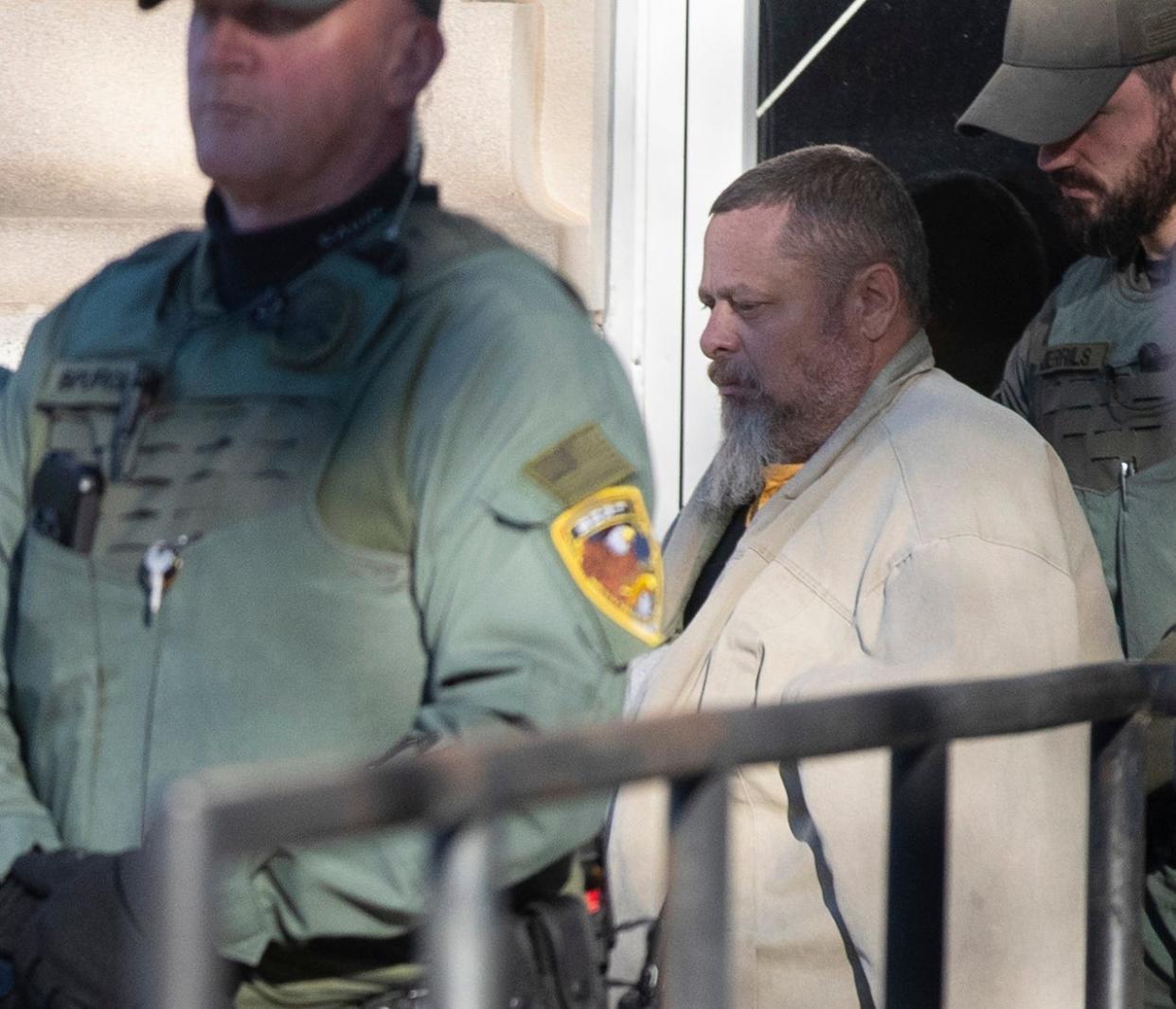Judge allows evidence found at Richard Allen's home into Delphi murder trial

DELPHI, Ind. — The evidence collected at Delphi murder suspect Richard Allen's house in October 2022 is admissible, Special Judge Fran Gull ruled on Monday.
That means his semiautomatic pistol prosecutors allege created the tool markings on an unfired bullet recovered at the scene will be admitted into evidence unless Allen's attorneys, Brad Rozzi and Andrew Baldwin, can find another way to block it.
The bullet was found between the bodies of 14-year-old Libby German and 13-year-old Abby Williams after searchers discovered the crime scene Feb. 14, 2017, along the north bank of Deer Creek. They had been killed the day before after being abducted from the trails around the Monon High Bridge east of Delphi, according to prosecutors.
Libby and Abby were killed with an edged weapon like a knife, not a gun, according to court documents filed in the case.
Allen's attorneys argued in motions to suppress the evidence that statements made by police to get the search warrant of Allen's house contained "false, misleading or reckless disregard for the truth." In support of the two motions to suppress the evidence, Allen's attorneys filed a 136-page memorandum Sept. 18 suggesting investigators omitted important evidence of other suspects in the case.
The judge also denied the defense's request for a Franks hearing, which would have publicly vetted the credibility of the investigation and statements given by police to obtain a search warrant.
In the memorandum, Rozzi and Baldwin presented a theory that Libby and Abby were killed by more than one person in an Odinist human sacrifice. The memorandum specifically identified several men who might be tied to the killings, including two from the eastern side of the state. One of those men made statements to his sisters that he was there and described details that were not known to the public, according to the defense's memorandum.
Gull disagreed with the defense and denied their motions to suppress and for a Franks hearing. She also denied Allen's motion to exclude the report that alleges the tool markings on the ejected bullet match tool markings on test bullets elected from Allen's pistol.
The denial of Rozzi and Baldwin's motions is the latest in a series of tense exchanges between Allen's defense attorneys and Gull.
Rozzi and Baldwin were reinstated to the case on Jan. 18 after an order from the Indiana Supreme Court. The high court's order followed a hearing during which attorneys for Allen wrote that Gull incorrectly removed the two attorneys from the case on Oct. 31, over Allen's objection.
The motion to the Supreme Court for writs to remove Gull and to force a speedy trial in 70 days were denied.
Allen's trial remains scheduled to begin Oct. 15 this year.
Reach Ron Wilkins at rwilkins@jconline.com. Follow on Twitter: @RonWilkins2.
This article originally appeared on Lafayette Journal & Courier: Delphi murder case: Search of Richard Allen's home was legal, judge says

